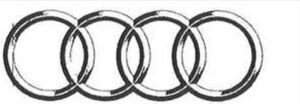On 25 January 2024 the CJEU issued the long-awaited judgement in the already famous AUDI case (C-334/22). This judgment confirms the possibility of Audi trade mark infringement in terms of the legal interpretation which will be further determined by a national court.

The court ruled in AUDI’s favour, stating that a car manufacturer can prohibit the use of a sign identical or similar to its trade mark for spare parts. I discussed the background and preliminary questions raised by the Polish IP Court in Warsaw here. In the judgement, the CJEU confirmed that: first, the repair clause is not applicable to trade mark law and thus cannot limit trade mark protection; and second, trade mark law applies regardless of the purpose of the use, particularly any (alleged) technical function. Before delving into this ruling, it is important to note that the CJEU did not follow Advocate General Medina’s opinion. After all, it is not a common situation, but it does occur, as demonstrated by the Louboutin case (see here). AG Medina concluded that EU trade mark law provisions must be interpreted as meaning that placing an element on a non-original automotive spare part (radiator grille) for the purpose of fitting the car manufacturer’s original mark does not constitute ‘use of a sign in the course of trade’.
The CJEU dispelled any doubts the Polish IP court had about whether a “repair clause,” as it is known in design law (art. 110 RDMC), could restrict the rights of the trade mark owner because no “repair clause” is allowed by trade mark law (para. 26). This kind of clause does not affect the trade mark laws; rather, it places restrictions only on the protection granted by designs (para. 27). Because of this, repair clause cannot be used “by analogy” to restrict the trade mark rights under Article 9 EUTM Regulation (para. 29). In this case, the radiator’s contested element’s shape was intended to accommodate the four-ring emblem. That conclusion cannot be changed by the fact that it is a radiator grille, which is a component of a spare part for a car (para. 38). Because that element is the same as or similar to the registered figurative mark, its use in the trade may be opposed to by the Audi trade mark owner if it could adversely affect one or more of the functions of the Audi trade mark (para. 41). The CJEU also stated that the fact that the average consumer perceives the grilles as not being original is irrelevant (para. 48). Furthermore, the contested sign is used to reproduce as faithfully as possible a product of that trade mark proprietor, rather than to designate or refer to goods or services as being those of the trade mark owner (para. 58). The limitations of the trade mark right under Article 14(1)(c) EUTM Regulation (referential use) do not apply to such use.
Comment
When I made my comments nearly two years ago, I stated that the Audi case should be judged using the lenses of “honest practice” and the flexibility provided by intellectual property rights, such as designs and the “repair clause.” This allowed me to determine at what points in the evaluation of an infringement claim appropriate flexibilities could be discovered and applied. This is why I was a little disappointed with AG Medina’s emphasis in her opinion on the lack of use of a specific Audi trademark when describing a feature of the spare part. Instead, I agree with the CJEU’s approach of determining whether a trade mark’s function has occurred in the context of use that is descriptive of contested elements as a technical property of the product, regardless of whether the contested elements (the chrome emblem and the socket on the grille) are perceived by consumers as an indication of origin (see Adam Opel). I am less convinced by the CJEU’s narrow interpretation of referential use, which may lead the national court to exclude third-party use of a protected and distinctive mark in a non-distinctive manner from the scope of referential use.
_____________________________
To make sure you do not miss out on regular updates from the Kluwer Trademark Blog, please subscribe here.


